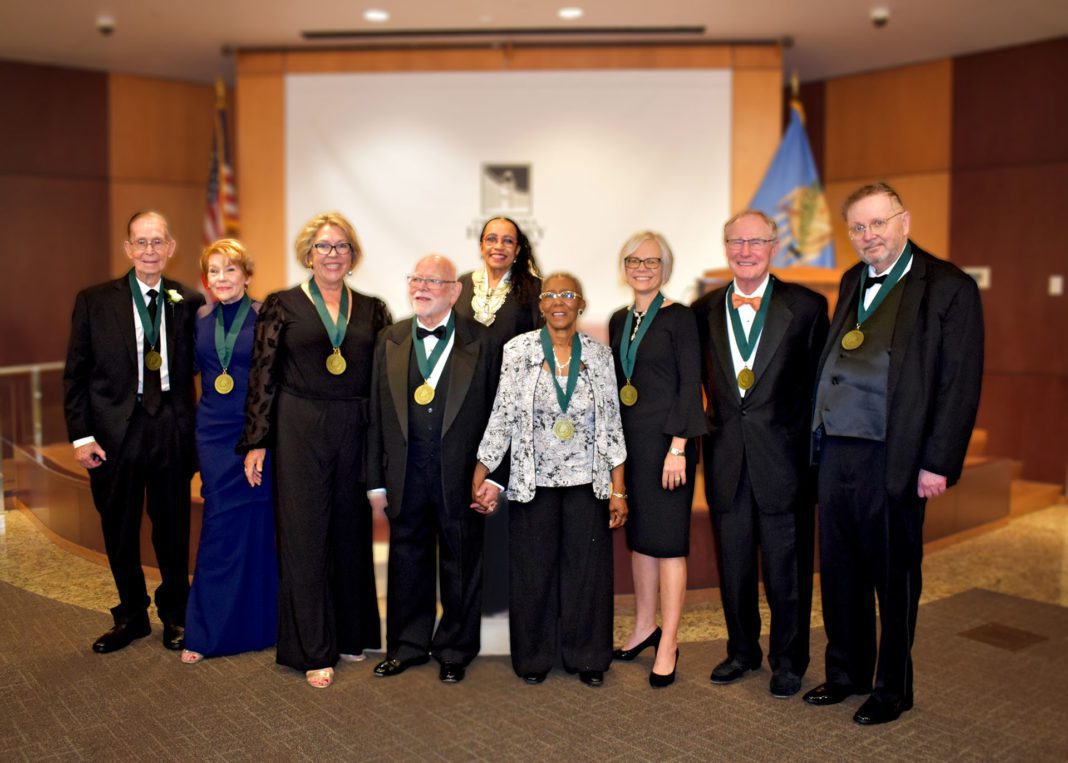Formal education and training have created great success for many Oklahomans, and the Oklahoma Higher Education Heritage Society (OHEHS) is a nonprofit organization committed to preserving and celebrating the higher education system in the state of Oklahoma.
The OHEHS, along with the Oklahoma State Regents for Higher Education and the Oklahoma Historical Society, are in a tripartite partnership to establish the nation’s first state higher education archive.
Founded in 1994 and housed in the research division of the Oklahoma Historical Society, the Oklahoma Higher Education Archive is available for students, educators and the general public. It is also searchable through the society’s online catalog.
John Feaver, Ph.D., the immediate past president of OHEHS, believes the preservation of heritage is one of the strongest tools to educate the citizens of Oklahoma.
“As the society is concerned with the heritage and the history of higher education in Oklahoma, the notion is: One cannot understand the importance of the present circumstances of the [higher education] system or where [the system] will be going in the future, unless one understands where it comes from,” he says.
The Future of Higher Education
Feaver and Belinda Biscoe, Ph.D., who is the current OHEHS president, believe that higher education is undergoing a profound transformation, further emphasizing a need for a deeper understanding of Oklahoma’s past – accomplishments and failures. This knowledge aids Oklahoma’s success in a changing education system, allowing the state to become more competitive in a global context.
“‘Tomorrow’ is not a hundred years away, we’re maybe talking about next year,” says Biscoe, concerned that a state unaware of its history might not be able to adapt to change. She believes higher education teaches people to be “nimble, taking that learning and applying it in other ways.”
One of the society’s biggest goals is to educate others about the critical importance of higher education in the state.
“People are sometimes unaware of the fact that education and quality of life are woven together,” says Biscoe, adding a list of potential benefits as byproducts when a state’s citizens are well-educated, including: higher socioeconomic standing, better physical health and lower divorce rates.
Biscoe says one of the society’s biggest challenges is being, “small but mighty,” applauding all the volunteers that keep the society running. There is a capital campaign hoping to generate enough money for minimum staffing.
“If we had additional resources, we would be able to expand our work,” says Biscoe.
Long term goals include forums, webinars, blogs and outreach programs to involve citizens (those especially looking for higher education opportunities) around the state. The society also wishes to build a stronger community with higher education institutions.
Celebration is something the society does well, promoting the belief that by celebrating greatness, the state will see it multiply. There is an annual induction banquet for the Higher Education Hall of Fame, recognizing high achieving professionals in scholarship, teaching, research, administration, staff support, outreach and public service.
“Systems do not maintain their vitality, their energy, unless they celebrate themselves – unless they recognize that they have accomplished certain things of value, and that there are reasons to stay together, stay effective as an organization,” says Feaver, boasting of the hundreds of inductees.
“History, tradition and legacy,” says Feaver. “That is what we are trying to preserve.”

























